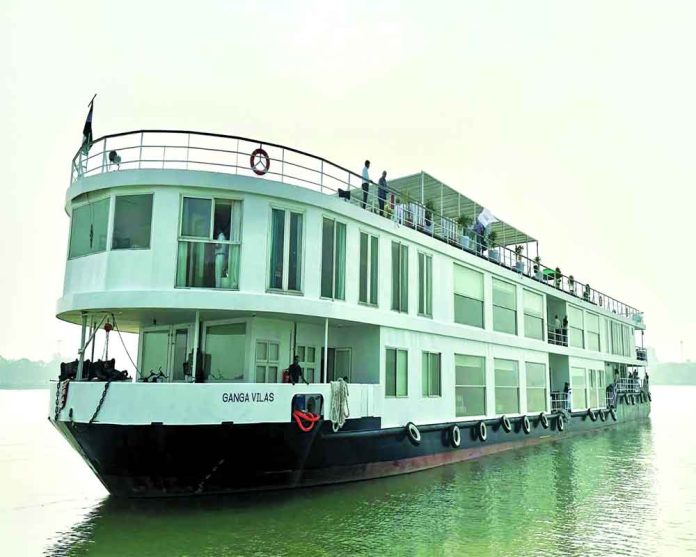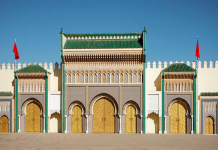The Tourism Ministry has been aggressively promoting different tourism products and destinations
Ganga Vilas cruise ship is only a mirror for the untapped potential of state tourism. In fact, the tourism industry offers immense potential and expects to earn $50.9 billion by 2028. India showcased its different tourism products and potential at the Arabian Travel Market, Dubai-2022, as the Middle-East has always been one of the major target markets for Indian Tourism.
The Tourism Ministry also undertook ‘Namaste India’ campaign for encouraging international visitors to travel to India during this mega event. Several state governments from India participated in the event, showcasing their major tourist destinations. India displayed itself as a holistic destination, revolving around major experiences, such as spirituality, heritage, adventure, culture, yoga, wellness and many more things.
The Tourism Ministry has been aggressively promoting different tourism products and destinations. The major focus has been given to the potential of MICE, Film Tourism, Wellness Tourism, Medical Tourism, Luxury Tourism, Wildlife Tourism and Adventure Tourism. By 2028, Indian tourism and hospitality is expected to earn $50.9 billion and the travel market in India is projected to reach $125 billion by FY27 from an estimated $75 billion in FY20.
The Middle-East becomes very important for the Indian tourism industry, as around three million Indians are living in different countries of this oil-rich region of the globe. Large number of tourists from the Middle-East visit India for MICE, medical, wellness, luxury tourism, etc. Hence, the Ministry of Tourism, has been holistically promoting Indian tourism in the Middle East market.
Participation in Arabian Travel Mart has been one such initiative by the Government. During the event, it was highlighted that India has opened up for the International visitors. Along with the ‘Namaste India’ campaign for encouraging international visitors, the ministry has also been focusing on confidence-building strategies post-pandemic.
The importance of film tourism and the potential of India as an-important destination for film-making, having all physical geographical features and landscape were also discussed at length. The role of North-eastern states as a potential film shooting destination was also showcased. The role of Indian diaspora for publicity and promotion of India in the overseas market was also discussed and sought for.
The appeal of Prime Minister Narendra Modi for ‘Chalo India’, urging Indian Diaspora to inspire at least five of their non-Indian friends every year to visit India, calling them ‘Rashtradoot’, was also highlighted. The role of the Indian diaspora with regard to the promotion of India in the overseas market was also discussed.
Experts also highlighted the role of social media for the promotion of tourism in India, which they said, could prove the game-changer for the tourism industry. Lots of millennial tourists use social media looking for promotional content such as travel and tourism. Social media also plays the role of influencers in engaging a large number of tourists.
The government showcased India’s rich and diversified tourism potential by providing a platform to the tourism stakeholders to showcase the various tourism destinations and products, including niche ones. It presented India as a ‘Must See, Must Visit’ destination. The India Pavilion showcased India as a ‘365 Days Destination’ with its culture, adventure, cruise, golf, MICE, luxury, wildlife, wellness, and medical tourism, etc.
Various verticals of tourism potential in India were discussed during the event. State governments are also participating vigorously in the event. For example, the government of Uttarakhand discussed the importance of tourist destinations in Uttarakhand that can be leveraged for the promotion of tourism such as adventure tourism, wedding tourism in the State of Uttarakhand. States also highlighted the initiatives undertaken by the respective government with regards to increasing the footfall of tourists in the state. Uttarakhand government also discussed various infrastructure development projects such as Haridwar International Airport and way forward strategies being undertaken by the Govt. of Uttarakhand.
Along with the participants from India representing state governments, tour operators, travel agents, and hoteliers/resorts, are also present in the India Pavilion showcasing the diverse tourism products and services. States like Uttar Pradesh, Uttarakhand, Madhya Pradesh, Karnataka, Kerala, Nagaland are enthusiastically participating in the event.
The Ministry of Tourism has recognised adventure tourism as a ‘Niche’ tourism product in order to promote India as a 365 days’ destination and attract tourists with specific interest. The Ministry has issued guidelines for the approval of Adventure Tour Operators, open to all bona-fide Adventure Tour Operators. A Task Force on adventure tourism has been set up to act as a forum for resolving issues related to development and promotion of adventure tourism in the country. The Ministry of Tourism has formulated ‘Indian Adventure Tourism Guidelines’ (Version 2.0) on safety and quality norms on adventure tourism as basic minimum standards for adventure tourism activities covering 31 verticals involving land, air and water in respect of adventure tourism activities.
Identification and development of tourist places or centres is primarily responsibility of the concerned state government or UT administration. Ministry of Tourism, Government of India, had launched the ‘Swadesh Darshan Scheme’ in 2014-15 for integrated development of theme-based tourist circuits in the country. Under the scheme 15 thematic circuits were identified for development. The projects under the scheme are identified for development in consultation with the State Government/UT and are sanctioned subject to availability of funds, submission of suitable Detailed Project Reports, adherence to scheme guidelines and utilization of funds released earlier. Since its launch in January 2015, the ministry has sanctioned around 76 projects worth Rs 5667.39 crores to 30 states and UTs covering the thematic circuits under the Swadesh Darshan Scheme.
India’s rising middle class and increasing disposable income has supported the growth of domestic and outbound tourism. By 2028, Indian tourism and hospitality industry is expected to earn $50.9 billion as compared with $28.9 billion in 2018. The travel market in India is projected to reach $125 billion by FY27 from an estimated $75 billion in FY20. The Indian airline travel market was estimated at $20 billion and is projected to double in size by FY27 due to improving airport infrastructure and growing access to passports.
The Indian hospitality market, including domestic, inbound and outbound, was estimated at $32 billion in FY20 and is expected to reach $52 billion by FY27, driven by the surging demand from travelers and sustained efforts of travel agents to boost the market. During 2019, foreign tourist arrivals (FTAs) in India stood at 10.93 million, achieving a growth rate of 3.5 per cent year on year basis. In 2020, FTAs decreased by 75.5 per cent YoY to 2.68 million and arrivals through e-Tourist Visa (Jan-Nov) decreased by 67.2 per cent YoY to 0.84 million. As of March 2021, the e-Tourist Visa facility was extended to citizens of 171 countries.
In April 2021, the percentage share of FTAs was highest from USA (26.85 per cent), followed by Bangladesh (15.65 per cent), Afghanistan (6.92 per cent), UK (5.87 per cent), Nepal (4.59 per cent), Canada (4.27 per cent), Iraq (2.99 per cent), Portugal (2.40 per cent), Germany (1.42 per cent), Russian Fed (1.41 per cent), Maldives (1.39 per cent), France (1.33 per cent), Sudan (1.21 per cent), Korea (Rep.) (1.18 per cent), and Australia (1.02 per cent).
(The author is a senior journalist)













